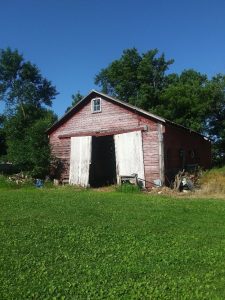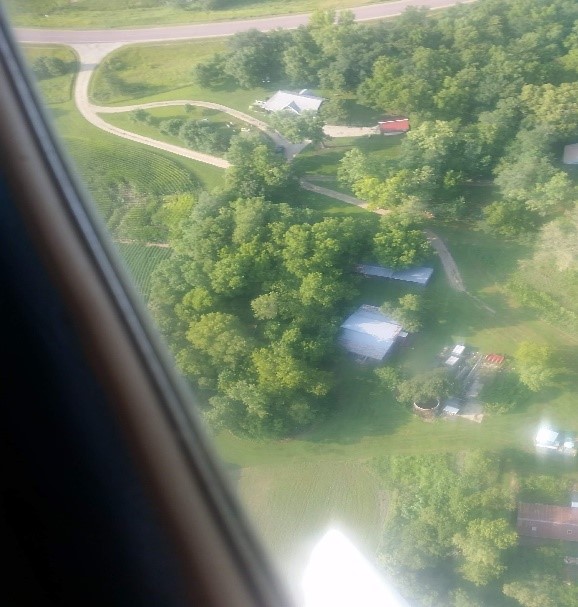The Lens – September 2019
“Legacy”
It was a warm Saturday morning in August of 2010. We had arisen early to be certain that the family, especially my mother-in-law and my wife, could make it to the arena at the Jackson County Fair (Jackson, Minnesota that is) on time. For many it was just another day at a typical agriculturally-focused county fair, the air filled with the mingled fragrances of cotton candy and corndogs contrasted by the obligatory 4-H barns filled with farm animals. However, for our family it was a special morning filled with heritage, legacy and memories. We arrived on time and joined several other farm families, each of whom would receive a plaque designating their family farms as a Century Farm. It was a proud and humbling moment as we acknowledged the hard and often sacrificial efforts of ancestors who then handed this legacy to our generation. To-date, there have now been five generations of Ruth’s family, and now our family, who have lived on this small farm.
One definition of legacy that I found on Wikipedia states, “In historical terms, a legacy is something that is handed down from one period of time to another period of time.” Yet, a legacy is not a static thing. It faces the forces of change just as everything does. In the 45 years I have been travelling to the farm it has changed dramatically. Ruth has walked that ground since she was a toddler and has seen even more changes than I have. For example, some buildings, while holding sentimental memory, have no real use or purpose anymore, and thus have simply fallen into disrepair out of a lack of relevance. Others have been repurposed. The legacy is still life-giving, but has to be viewed and used in new ways. It cannot, and should not be a romantic museum of the past.

[The old corncrib no longer holds corn. Perhaps a future woodworking shop!-photo by Jerry DeVine]
In this month’s Mid-Michigan District Newsletter you are learning about a new grant opportunity for local churches initiating new ministries. This has become possible only because of taking legacy seriously. As the new Michigan Conference was being formed and the new nine districts were being shaped, a commitment was made to provide a missionally-focused legacy fund for every district. Every new district would have a minimum of $250,000 as a starting base for innovating ministry support moving forward. Those funds were generated predominantly from the sale of church properties when some local United Methodist churches ceased to be worshipping congregations. At our 2018 Annual Conference the conference members voted approval for a policy that 50% of the assets coming from the closed church, after debts have been cared for, would go into a district legacy mission fund, and 50% would go into a conference congregational vibrancy legacy fund. Remember the definition: “A legacy is something that is handed down from one period of time to another period of time.” The financial commitments and sacrifices of generations ago that started some of our local UM churches lives on when those facilities become either a home to a new church start, or are sold and the funds become a part of launching new ministries in new ways in new places.
The Mid-Michigan District was very fortunate to have a substantial starting Legacy Mission Fund. After providing approximately $70,000 so other districts would have their starting base of $250,000 the Mid-Michigan District still had over $600,000. The District Leadership Team established a Board of Missions to give oversight to the handling of grant processes and for reviewing grant applications. The Leadership Team established a Legacy Mission Fund account with the United Methodist Foundation of Michigan. We have some funds available immediately and some that will grow over time, allowing for a legacy that is long-lived, and handed on for a new day.
If your local church or group of churches does decide to seek a grant for launching vibrant ministries please pause and remember why being a part of a connectional church matters. We hold properties “in trust for the benefit of the entire denomination” (Paragraph 2501, 2016 Book of Discipline of the UMC). Because of that connection we can now offer grants back to our local churches!
Blessings,
Jerry
